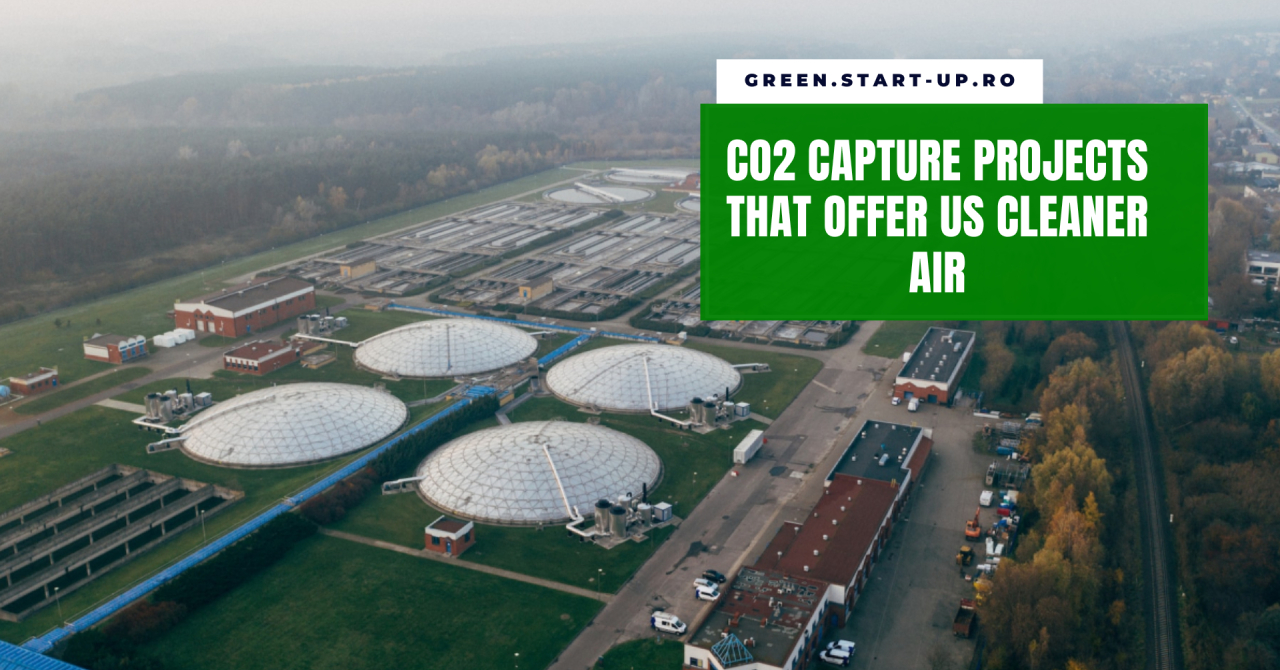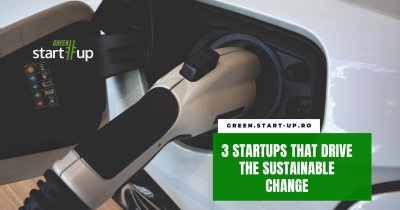In this list we'll focus on the green startups in the carbon capture industry that we wrote about this year and that shared their vision and values with us regarding sustainability. We won't be able to cover the entire green startups ecosystem in the CO2 sector in this list, but step by step, we will look out for those who want to contribute to a more equitable world and that want to tell us more about their journey.
Yard Stick
Yard Stick was founded back in 2021 and it uses advanced software and hardware technologies to sample and verify soil carbon capture projects. Yard Stick also acts as a third-party validation tool for companies in the agrifood industry that want to reduce their impact on the planet.
Yard Stick PBC recently raised 12 million USD to help the company assess the effectiveness and quality of soil carbon capture projects. Yard Stick officials claim that their solution can collect sample measurement data and create accurate statistics for a 70-90% lower cost than the competition.
Chris Tolles, Co-founder and CEO of Yard Stick, said that "this funding will help solidify our leadership position in soil carbon measurement and we’re very much looking forward to partnering with all of our investors to build up trust in the sector."
Third-party companies that can validate the efficiency of carbon capture projects are essential for the correct assessment of their performance. Being a rapidly-developing industry with more and more actors being actively involved in this field, CO2 capture becomes more important for the companies that want to reduce their negative impact on the planet.
Read more about Yard Stick's solutions from this article on Green Start-Up.
Frontier
Fontier is a carbon removal purchaser coalition and this year, its officials announced a series of offtake agreements with two carbon capture specialized companies, amounting to 47 million USD, for the removal of 72.000 tons of CO2 from the atmosphere.
CarbonCapture and Heirloom are the two companies that will be removing carbon emissions on behalf of industry members such as H&M and Alphabet.
Experts at the Intergovernmental Panel on Climate Change (IPCC) claim that we will have to remove billions of tons of CO2 from the atmosphere over the coming decades so that we can hit our long-term climate goals.
The individual carbon capture agreements are as follow: 20 million USD for CarbonCapture to remove 45.000 tons of CO2, as well as 26.6 million USD for Heirloom to remove 26.900 tons themselves.
CarbonCapture CEO Adrian Corless, added that "large offtake agreements like this are critical to us because they demonstrate commercial viability and unlock a path to scale."
Heirloom's strategy to capture carbon emissions counts on accelerating the natural processes to achieve this, specifically through carbon mineralization.
The fact that there is a coalition for the companies that take care of carbon removal underlines on one hand the stake behind this branch of sustainability and on the other, the number of players in this industry, who fight to offer us a cleaner air at the right price.
Read more about the Frontier coalition from this article on Green Start-Up.
Heirloom
Heirloom is one of the most important carbon capture companies out there and it is also in the Frontier coalition that includes CO2-capture companies. Furthermore, it will be building the direct air carbon capture unit, while it also collaborates right now with Battelle and Climeworks in order to build one of the planet's largest projects of this kind in Louisiana.
Should it be completed, it may have a carbon capture capacity of over one million tons per year for permanent underground storage, over 250 times the capacity of the world's current largest DAC unit.
Microsoft is said to be the first customer of one of the first carbon removal hubs developed by US representatives, which is set to capture 315.000 tons of CO2 emissions for the American tech company over the next decade.
Last year, Microsoft was among the investors who spent a total of 53 million USD to help Heirloom develop its carbon capture solutions.
Microsoft is also a company that invests heavily into carbon capture projects, either through industrial-artificial processes, or by funding natural solutions, such as reforestation or growing kelp.
Read more about Heirloom from our article on Green Start-Up.
Compact Membrane Systems (CMS)
CMS is one of the oldest companies in this industry, having been founded back in 1993, and it provides membranes used for carbon capture systems. The company's solutions are modular and electrified and they are also designed to eliminate the need for regeneration or chemical solvents.
The company was able to raise 16.5 million USD this year to continue developing its hardware-based solution for decarbonizing hard-to-abate sectors.
Company officials said that the investment should help the company develop and commercialize its upcoming low-cost and fully electric carbon capture solutions by 2026.
Read more about Compact Membrane Systems from our article on Green Start-Up.
 Mihai - Cristian Ioniță
Mihai - Cristian Ioniță












Any thoughts?